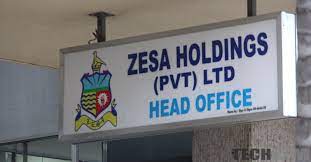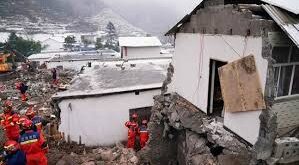
Power utility ZESA Holdings is pushing for a 100% tariff increase to ensure the country enjoys a steady supply of electricity, Business Times can report.
ZESA is charging an average of US$0.063 per kilowatt hour.
Katsande said the low tariff level was inadequate to generate sufficient revenue to fund operations and maintenance
“The current tariff level averaging of 6.3 US cents per unit is subeconomic. ZESA requires a cost reflective tariff equivalent of 12.36 US cents per unit to efficiently provide service,” Katsande said during a stakeholder engagement meeting in Tengwe, Mashonaland West.
He said the tariff had fallen to a mere US$0.032 per unit in August 2020 before September 2020 adjustment.
A huge backlog of distribution network maintenance has built over the years arising to insufficient revenue generation capacity from a below cost of supply tariff.
He said there are over 300 000 housing units in new residential developments where there is no backbone infrastructure to connect customers.
“Most of the customers are now resorting to solar power and gas resulting in ZESA losing a potential revenue of US$1m per month” Katsande said.
Experts say any tariff increase would trigger a fresh round of increases in prices of basic goods and services.
Katsande said the ZESA distribution network is currently experiencing over 106 000 faults per year. He said about US$16m is required to replace over 2000 vandalised and faulty transformers adding the power utility faces challenges of theft of copper conductors on old power lines and breakdowns at the aged Hwange Thermal Power plant which is causing power supply shortfalls resulting in load shedding.
ZESA Holdings general manager, stakeholder relations communications and welfare, George Manyaya, said the power utility has intensified engagements with the stakeholders across the country to appreciate the challenges faced.
“Without you there is no ZESA. We are here in Tengwe, a large farming area which adds to the agricultural pillar of National Development Strategy 1. We represent the energy pillar and we need to work together in ensuring that we attain vision 2030,” he said.
Chairperson of the Consumer Advisory Committee, Stanley Nyanzombe appreciated the gesture by ZESA to engage the nation and advised the community on the dangers of vandalism.
Business and households have endured power cuts due to low generation capacity owing to obsolete equipment and vandalism of infrastructure.
Chinhoyi residents have now gone for four days without electricity owing to armoured cable theft and vandalism.
The affected areas are Golf Course, Ruvimbo, Rujeko and Garikai high density areas.
ZETDC District Manager Engineer Tichawona Chikuvira said residents should be vigilant and protect cables and transformers.
“Community policing even forming watch committees may help a great deal. You can imagine the long wait before a replacement is found should we lose what we already have,” Chikuvira said.
While Zesa is looking for resources to acquire the conductors and cables, residents said they can no longer bear the continuous blackout as it is affecting their day to day life.
“How can thieves know that they will be no Zesa at a particular area. Look at the rate they have gone in Chinhoyi, Zesa should investigate this internally. This is an inside job,” Chikondowa said. BusinessTimes
 Nhau News Online News that is accurate, reliable, trustworthy!!
Nhau News Online News that is accurate, reliable, trustworthy!!
